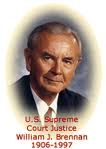“Punting the Pundits” is an Open Thread. It is a selection of editorials and opinions from around the news medium and the internet blogs. The intent is to provide a forum for your reactions and opinions, not just to the opinions presented, but to what ever you find important.
Thanks to ek hornbeck, click on the link and you can access all the past “Punting the Pundits”.
Follow us on Twitter @StarsHollowGzt
Glenn Greenwald: On the Espionage Act charges against Edward Snowden
Who is actually bringing ‘injury to America’: those who are secretly building a massive surveillance system or those who inform citizens that it’s being done?
Prior to Barack Obama’s inauguration, there were a grand total of three prosecutions of leakers under the Espionage Act (including the prosecution of Dan Ellsberg by the Nixon DOJ). That’s because the statute is so broad that even the US government has largely refrained from using it. But during the Obama presidency, there are now seven such prosecutions: more than double the number under all prior US presidents combined. How can anyone justify that?
For a politician who tried to convince Americans to elect him based on repeated pledges of unprecedented transparency and specific vows to protect “noble” and “patriotic” whistleblowers, is this unparalleled assault on those who enable investigative journalism remotely defensible? Recall that the New Yorker’s Jane Mayer said recently that this oppressive climate created by the Obama presidency has brought investigative journalism to a “standstill”, while James Goodale, the General Counsel for the New York Times during its battles with the Nixon administration, wrote last month in that paper that “President Obama will surely pass President Richard Nixon as the worst president ever on issues of national security and press freedom.” Read what Mayer and Goodale wrote and ask yourself: is the Obama administration’s threat to the news-gathering process not a serious crisis at this point?
Paul Krugman: Et Tu, Bernanke?
For the most part, Ben Bernanke and his colleagues at the Federal Reserve have been good guys in these troubled economic times. They have tried to boost the economy even as most of Washington seemingly either forgot about the jobless, or decided that the best way to cure unemployment was to intensify the suffering of the unemployed. You can argue – and I would – that the Fed’s activism, while welcome, isn’t enough, and that it should be doing even more. But at least it didn’t lose sight of what’s really important.
Until now.
It will not be with guns.
If ever tyranny overtakes this land of the sometimes free and home of the intermittently brave, it probably won’t, contrary to the fever dreams of gun rights extremists, involve jack-booted government thugs rappelling down from black helicopters. Rather, it will involve changes to words on paper many have forgotten or never knew, changes that chip away until they strip away precious American freedoms.
It will involve a trade of sorts, an inducement to give up the reality of freedom for the illusion of security. Indeed, the bargain has already been struck.
Juan Cole: So When Will Dick Cheney Be Charged With Espionage?
The US government charged Edward Snowden with theft of government property and espionage on Friday. [..]
Charging leakers with espionage is outrageous, but it is par for the course with the Obama administration.
The same theory under which Edward Snowden is guilty of espionage could easily be applied to former vice president Dick Cheney. [..]
What Cheney did in ordering his aides Scooter Libby and Karl Rove to release the information about Plame’s identity was no different from Snowden’s decision to contact the press.
And yet, Cheney mysteriously has not been charged with Espionage. Hmmm….
New York Times Editorial Board: More Overreach by the N.Y.P.D.
The revelation in 2011 that the New York City Police Department was spying on law-abiding Muslims rightly attracted scrutiny from the Justice Department, which announced last year that it intended to review the program. The disclosure also raised troubling questions about whether the city was violating a federal court order that bars it from retaining information gleaned from investigations of political activity unless there are reasonable indications of potential wrongdoing. The purpose of that order was to discourage unjustified surveillance and prevent police from peering into people’s private affairs and building dossiers on them without legitimate cause. [..]
Police Commissioner Raymond Kelly has responded to such complaints by insisting that the department’s surveillance program is perfectly legal and implying that critics are undermining public safety. This is the same response he offers when challenged on the stop-and-frisk program. This arrogant approach tries to discredit legitimate criticism while justifying further overreach by a department with a history of abusive behavior. It is up to the courts to determine whether the Muslim surveillance program and the stop-and-frisk program are constitutional. What already seems clear is that these surveillance policies create suspicion and mistrust, which does not help the Police Department or anyone else.
Robert M. Morgenthau: Let Shooting Victims Sue
In 2004, relatives of eight people shot in the Washington-area sniper attacks received $2.5 million dollars from the maker and seller of the rifle used in those shootings. That was a matter of simple justice. But the gun lobby had no use for that kind of justice. They went to work and, the next year, Congress passed the Protection of Lawful Commerce in Arms Act, severely reducing the legal liability of gun manufacturers, distributors and dealers for reckless acts that send guns to the black market. The National Rifle Association called it “the most significant piece of pro-gun legislation in 20 years.”
This kind of legislation encourages arms dealers to turn a blind eye to the lethal consequences of what they peddle, and rewards their breathtaking irresponsibility. [..]
The Second Amendment right to bear arms is an important right. But the contours of that right must not extend to those who look away as their guns enter the hands of criminals and the mentally unstable. Congress should immediately repeal the 2005 gun immunity law, and let free-market incentives encourage responsible behavior by the gun industry.

 On this day in 1957, the U.S. Supreme Court rules that obscenity is not protected by the First Amendment.
On this day in 1957, the U.S. Supreme Court rules that obscenity is not protected by the First Amendment. This is the year that the funding authorization for the Federal Rail Authority expires, and the Obama administration is answering with
This is the year that the funding authorization for the Federal Rail Authority expires, and the Obama administration is answering with 

Recent Comments